Maria Azzopardi’s story in football started as part of a group of women who laid the foundations of the women’s league in the 1990s and the Malta women’s national team in the early 2000s. However, Maria Azzopardi’s life in the sport spans beyond the pitch and the women’s game.
Over time, she specialized in Sport Law, which enabled her to work tirelessly in the administrative side. Doing so, gave her a unique hand in developing both the women’s and the men’s game within clubs, MFA boards and in regulatory authorities.
Dr Azzopardi is seeking to implement all her experience as the first female Vice President in the Malta Football Association (MFA), depending on the vote on March 15th. In honour of the upcoming election, The Sporting Fan sat down with Azzopardi to discuss her history in the game and most importantly what she could bring to the role of Vice President.
Eleanor Saliba (ES): Walk me through your beginnings in football and how that led into playing at club and national team level.
Maria Azzopardi (MA): I tagged along with my brother to play football with him and other children from my village, basically in the streets of Dingli, where I’m from. At 10 years old I joined the women’s team of Depiro in Rabat and we played 5-aside matches at Luxol. I was so young in my first season that I had to wait to become of age and I remember I could only play the last match. However, I remember the team did whatever they had to for me to score on my debut. It was a very good team, with most players eventually making it into the national team later on, once it was formed.
Depiro switched to Rabat Ajax, which was one of the strongest teams in the league, along with Lija. I stayed with them as the league changed from 5 into 7 and into 9-a-side, up to the point of me turning about 16 years old. Then players started to devolve into other teams and I went to Melita, where I stayed until around 2005.
During my time with Melita, the first selections of players started to happen with the intention of trying to form a national team, thanks to Pierre Brincat and Alfred Zammit, under the umbrella of the MFA. I remember we went to Verona to play against a selection of teams there. Then after a few years, the national team was officially formed. It was a great honour to receive the Maltese shirt and to represent the nation as part of this group of women. At that point (around 2003) we started to play at Pace Grasso and the league changed to 11-aside.
By this point, Azzopardi had lifted the league and knockout titles with Rabat Ajax (1997/98), before winning the individual honours of MFA Player of the Year and the Replay Player of the Year awards in 2003/04.
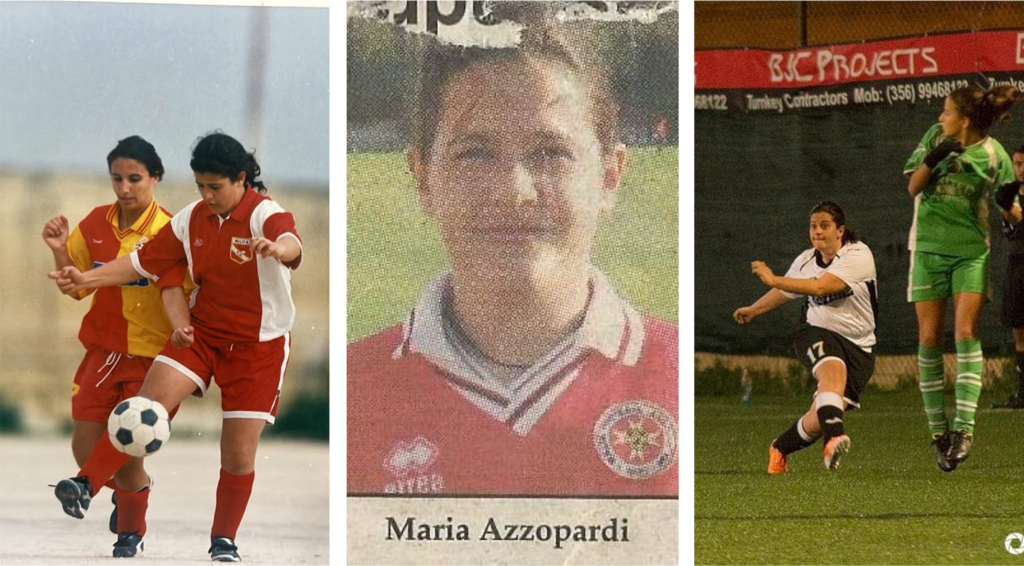
I switched to Hibernians then, which over time had started to become one of the strongest teams and juggling it alongside the national team. Looking back in those early years with the national team, we struggled for recognition, support and also of course results. As you can imagine when you don’t get results, it is difficult to get the backing, in terms of media, commitment and respect.
Throughout this time, I continued my studies at the University of Malta to become a lawyer, while playing football. However, once I started my full-time job I could not really set my hours. The life of a lawyer when you don’t set your own times involves long workdays up to 9 pm, which meant that I started to lose my ability to keep up with training at the same level. So, at that point I retired from the national team (around 2013) and kept playing with Hibernians for a few more years (until around 2017), before I went into administration roles.
ES: What attracted you to make that switch from playing to an administrative role?
MA: I think it was my passion for football paired with a sense of always pushing myself to grow more as a person. The commitment for me is to the game of football, it was not just to playing. I felt a responsibility to keep contributing to it. I am still of this mindset. I do not feel like I’m missing out on playing, I am happy with what I did in that chapter of my life in the game, but I still feel that commitment to football. So, pairing that with my sense of needing to strive for change, I think piqued my interest to go into the administrative side. In a sense, this is what I am searching for as well with running to become a Vice President, because I feel that this is a change that I need to grow further and I think from my past experiences I can bring a unique contribution at that level.
ES: Do you think that there was an element of fighting for things within the footballing world that influenced your decision to become a lawyer?
MA: I don’t think it was particularly like this. I think it was my character that caused me to pursue both football and being a lawyer. I think it was rather that my passion to both football and being a lawyer converged when I did my Master in Sport Law, because it meant I could put these aspects of who I am, together.
However, being in football enabled me to see a lot of parallels that happen in real life from a different perspective. I think football helps a lot in life beyond the pitch. It is a team sport, so it pushes you work as a team irrespective of how much you like everyone, including your coach. You must work together for one aim, which is to grow and get to an end result. However, football has an individual element to it as well, because while you are on the pitch you must perform and contribute as an individual. Football also pushes you to set targets and causes you to assess your environment and what you are willing to sacrifice to achieve your goals.
For example, when I was with Melita, I knew Hibernians were the strongest. Each year, I wanted to fight to win the league with Melita, but I did not manage this and kept fighting until I realized that my targets did not align with those of the rest of the team. So, I had become stuck in my development and needed to switch. These are all parallels that you experience in life away from football.
ES: I read that you had a spell coaching for a bit, which is perhaps a branch which most football players think of going into after retiring. What was that like for you?
MA: I coached boys for a little bit when I was playing with Rabat. I enjoyed it, but the commitment of coaching is different and it is very difficult to pair that with my practice as a lawyer. A coach’s job is not just going to training, it’s preparing for a whole season and not just one session here and there. It’s getting to know your players and dealing with the dynamics of a dressing room day to day. I am happy that I had that experience, because it made me appreciate the nuances of it and the challenges involved, but I also knew that it was not for me long-term.
ES: Considering the hands-on approach of both playing and coaching, paired with your involvement in the sport since, what are key strides that need to be made in this regard?
MA: I think in this case we must consider things holistically, not just from an MFA perspective, but that as a country we are promoting sport in general. So, this means that you first need to create dedicated facilities, and this applies even beyond football.
Secondly, is the coaching pillar, must also be considered from a wide viewpoint. We must create a way to have highly qualified coaches at youth level, because that is where you set the foundation. However, even more importantly, the coaching pillar cannot be just focused on tactical coaches, but to also cater for things around sport, such as nutrition, mental health and performance psychology, and physical training.
I am well aware that all of this ties into finances, which is where the law of commercialization is relevant, because we need a way for football to become sustainable.
The details of this are discussed later on, but first I wanted to probe Azzopardi on her time as a club official.
ES: You continued to involve yourself in the administrative aspect of the game as a club official after playing retirement. What are some key duties that you have handled that pushed your teams to new heights?
MA: There are a few things, but perhaps one of the key elements was the introduction of a controlled number of foreign players, which is a recent development in the women’s game. Birkirkara had several foreigners but perhaps as Swieqi United, it was something we adopted with a wider approach. We still put a lot of emphasis in developing young Maltese players, but we do this hand-in-hand with bringing foreign talent who can bring a different challenge and so help to improve the local game as well.
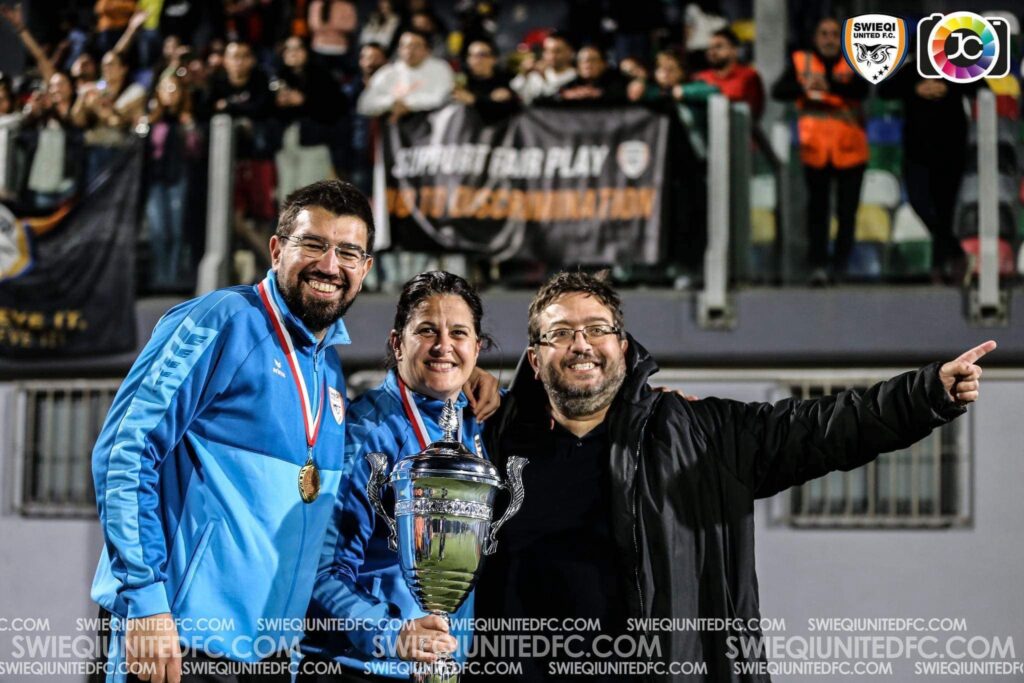
Besides her work as a club official, Dr Maria Azzopardi also chaired an MFA Board, and lended her expertise beyond football on anti-doping panels, and more recently within the Authority for Integrity in Maltese Sport (AIMS).
ES: While you are still actively involved in football, you also expanded beyond it in an executive sense through your specialization in Sport Law. One of the more recent engagements is within the Authority for Integrity in Maltese Sport. Can you give some explanation into your work with them?
MA: I have an agreement to act as a consultant within the Authority of Integrity within SportMalta (AIMS). We are discussing a set of new legislations. For example, one of them is relating to the registration of all clubs, irrespective of the sport that you focus on. This is important because a specific authority has been set up to keep a register of all these entities and of all athletes. Setting up something like this creates a basis to be entitlemed for certain incentives, while as a country we would have an exact picture of the situation in Malta.
Besides this, we are also working on a new legislation related to doping, and other sporting matters. I’m working with them also on a Memorandum of Understanding related to sports and its regulations.
ES: Doping is something that is very rarely mentioned locally. However, it is a real part of the game. From your work on this, what do you think are key elements that need to be tackled going forward?
MA: I think education is something that cannot be overlooked and this is something we’re working on within AIMS. The objective would be to create a program to raise awareness on doping in children. The idea is that if you raise the awareness within the younger demographic, you are setting yourself up for a cultural shift as they grow older. If I look at how much awareness we had as players when I was playing, to what players have now, you see improvement. However, it is at senior level. We’re not tackling youths as much, so education from a young age is key.
Take On Some Of The Challenges Awaiting In The Coveted Office
In view of some of the challenges which any of the candidates will face if elected as Vice President, below are a list of questions that have been asked to all the interviewed candidates.
ES: One of the factors mentioned recently has been that the statistics show that the number of players in the women’s game has been increasing. Do you agree with this statement?
MA: I think it is one thing to say that the numbers are increasing, but one would need to verify whether that is the case in the younger age groups or across the board. It could be that the children engaged at some point is increasing, but I think you need to monitor the continuity and regularity of their involvement over time. Are they engaged in the grassroots level, spend two years and then stop? I think these are key factors to measure.
Once again this is not specific to the women’s game, the same problem exists in the boys but perhaps it is slightly more overlooked because the initial numbers are higher. I think in both boys and girls’ categories there’s usually a drop off point between ages 14 to 17, due to various factors, losing interest, school, transport issues etc. In the women’s game it is immediately evident because you end up with less teams in the U19 league and some of them not being able to field a first eleven and numerous bench.
So, I think maybe the numbers are increasing at grassroots level, but we need to monitor the bigger picture perhaps and see whether they are making it to U19 level at least. I don’t think it is a response you can give easily, but it warrants some more long-term observation.
ES: Fixtures have been a debated issue, with various points from all stakeholders into the issues of fixture congestion in relation to youth players, as well as restrictions due to pitches. What do you think needs to be done to address this aspect moving forward?
MA: I think there has been a lot of improvement to be honest. I think with regards to the women’s game, the move of senior league matches to the weekend was a positive one. I am aware that not all players agree with it, but if we want to professionalise the game, then we had to take that step because that is when people will attend matches. The rest of the world plays matches on the weekend for a reason. There’s been a lot of improvement, the only hiccup maybe are the matches on Thursday which were never part of the original plan.
I think from a wider perspective of football, also incorporating the men’s game, there is a problem when a club tries to give opportunities to youths in the senior matches. In the women’s game there is perhaps the aspect of back-to-back fixtures which has been tackled to some extent, but the rest-time is still an issue. It is seen also in the men’s game at certain league levels. Additionally, in the men’s there is a restriction in the amount of minutes a player can play in a youth match for them to be able to play in the senior’s games. We need to be careful that we’re not penalising teams for trying to give young players experience at senior level. So, this element of how clubs can utilise youths within the youth teams and the senior teams needs to be addressed.
ES: Being Vice President involves listening to a wide number of issues, but also have the ability to find solutions that cater for all football, not just women’s football. What are elements that make your experience relevant to both the men’s and the women’s game?
MA: I think my education in Sports Law gives me a background on an international level. Having worked with a number of associations I have a wider view of the challenges in sport and then I can appreciate the nuances of football as well from a technical perspective because of my playing career.
To give you another example, being part of the committee of Swieqi United has given me a unique platform because the club philosophy does not segregate the women’s committee away from the rest. There are regular meetings where all of us touch base on everything that we face in our respective sectors. In this way, for example, it is common to discuss maybe an issue that the senior men’s team coach or men’s team club official has faced together, same with the women’s team, or even in futsal etc. I’ve always been interested in football as a whole, not only women’s football. My only restriction in this regard was in playing because I could only play in the women’s leagues and teams, but in administrative roles I’ve been involved in every aspect of the game.
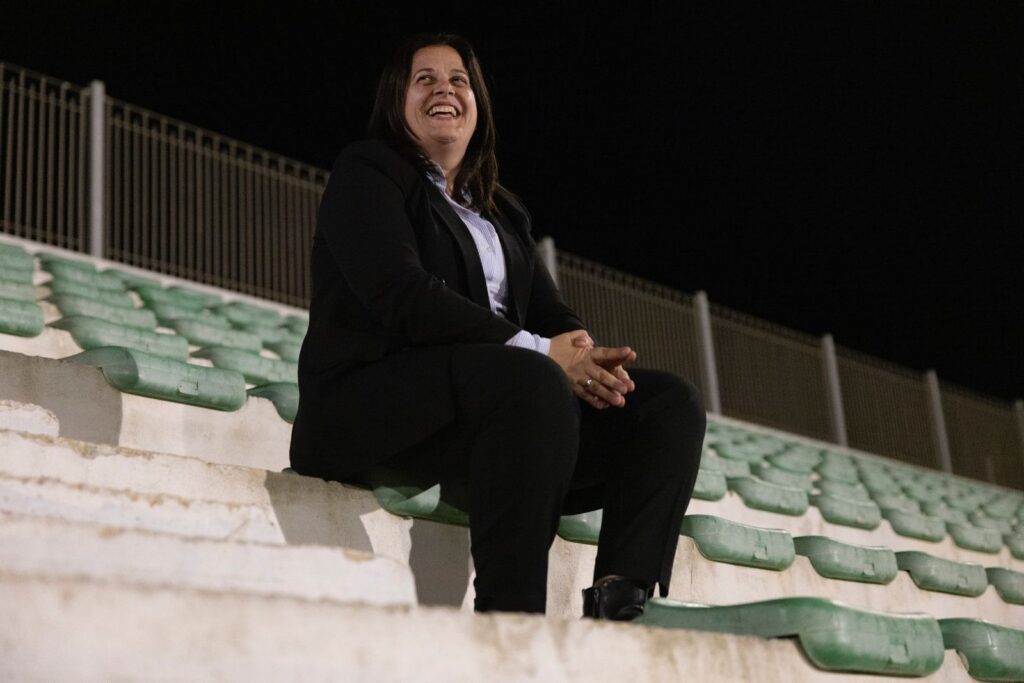
ES: What are three things that you think should be on the agenda for the upcoming years?
MA: I think many people underestimate how similar certain issues are between the men’s and the women’s game. So, with that viewpoint I think the first thing is the coaching structure and courses available as I mentioned before.
Tied with this is a second factor which is the youth development structures. We must tackle this to make sure that we are creating a pathway for players to reach potential. This will elevate the game and ultimately also the national teams.
Thirdly, I think it is important to focus on administration at club level, because UEFA and FIFA regulations impose certain standards on clubs, including registration, documentation on the running of the daily activities club etc. However, the problem is that our clubs are struggling to keep up with this from an administrative sense. This is because clubs are still reliant on voluntary work and it’s difficult to keep up with the volume of work and quality needed. The number of people volunteering is always dropping, and the reality is that most clubs are not in a position to be able to employ full-time professionals financially.
So, the management of clubs needs to be addressed much in the same way as you would a professional business, because if there isn’t this structure, the club cannot operate under these regulations. We cannot just consider club’s administrative functions only relevant to bringing players on board. Having a poor structure to deal with the rest will lead to a club defaulting over time, no doubt. In this regard, besides setting the structure, we must ensure that the current work to educate through the MFA courses continues to become more robust, so that we upskill those involved to deal with these regulations.
I’ll mention two more. Fourth is facilities. There are instances where we need to build them and in other cases clubs need a way to be able to maintain them. This all boils down to financials which circles into commercialization. If we look beyond our shores, a stadium is no longer called something synonymous with the club, but it’s branded by one of the sponsors, the Etihad, Allianz Arena, Emirates Stadium etc. They are creating a product. We cannot keep relying on club owners to be beneficiaries. These people need some way to return on investment so that they keep up their involvement, so that clubs keep growing and in this way football as a whole can grow.
This is exactly where the commercialization law is crucial and this is something that would benefit any club who wants to commercialise, irrespective of whether they are in the Premier League, Challenge League etc. However, this law needs to go beyond the white paper status and into implementation. Doing so would elevate the professionalism of the game and thus help to eradicate bad practices.
In line with this, one must consider who the supporters of football are and work toward getting them closer to Maltese football. That perhaps is the final pillar and it is a challenge. I think helping clubs to set up these structures helps, because then at club level they will also have the necessary setup to engage supporters as well. Probably there must be studies into what match-goers want and what club supporters want. I know that currently, the situation when going to a football match is not family-friendly.
Many countries have found ways around this issue. It could mean that for example the MFA would speak with foreign associations like the English FA and the German FA, who have found ways to build a different culture at matches which is one people enjoy attending in their weekends, not just at Premier League and Bundesliga level, but across tiers. It does not mean that you can implement it directly, but there could be elements that could work in Malta and help us to create an event that people look forward to attending on a weekend.
ES: There are a group of candidates in the running for becoming Vice President. What do you think sets you apart as someone that can take football forward as a whole?
MA: The way I see it, whoever gets elected is there in service of the people who elected them. I think my experiences on the field as a player and coach, put together with my off-the-field experiences in administration and law, give me a holistic viewpoint and the relevant tools to understand and be able to support Maltese football to reach a new level. I think, should I be elected, getting into the role of a Vice President would be something that challenges me to grow further and I look forward to this. However, my experiences in football are wide-ranging which gives me a unique foundation to understand challenges and then work toward tackling them.
The Sporting Fan would like to thank Dr Maria Azzopardi for taking the time to be able to bring you this special feature in honour of the upcoming election to take place this Friday, 15th March.
Stay up to date by following The Sporting Fan on social media: Instagram ~ Facebook ~ X
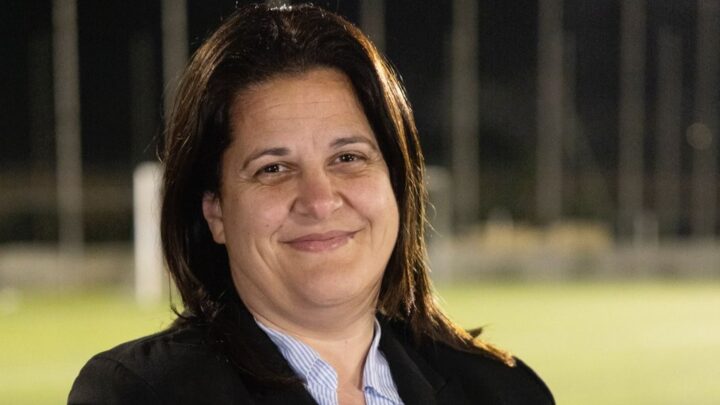
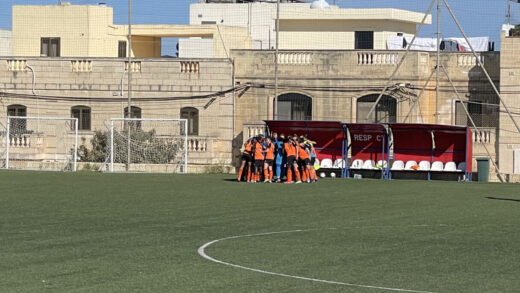
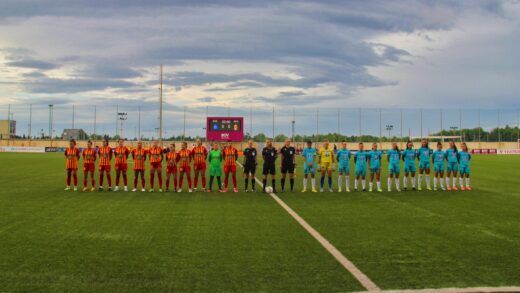
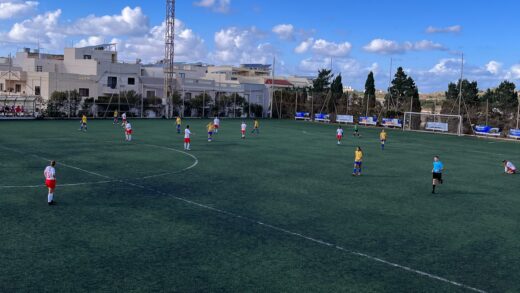
1 Response
[…] Azzopardi was elected to the position with close to 50% of the vote (34 out of 69 eligible votes) to continue her pioneering role in the sport. Christabelle Chetcuti came closest with 22 votes, while Dana Farrugia amassed 13 […]